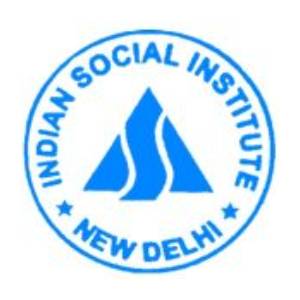About
-
Headquarters
New Delhi, Delhi
-
Since
1951
The Indian Social Institute was established not merely as a research centre, but as an ideology committed to driving social transformation. Its foundi Read moreng aimed to contribute to the profound task of reshaping society. The original vision articulated the need for a deep exploration of the Indian social landscape from all angles. Over its history, the institute's focus has evolved, embracing diverse areas such as social doctrine, NGO support and training, women's issues, and rights-based advocacy. It has adapted to respond to changing socio-political landscapes, including the challenges posed by liberalization, privatization, and globalization in the late 1980s. In the new millennium, the institute has increasingly engaged in expanding civil society space and advocating for policy changes, earning NGO special consultation status with the United Nations Economic and Social Council. Throughout its journey, the Institute has garnered credibility among academics, activists, students, and marginalized communities through action-based research, publications, capacity building, and policy advocacy. It has served as a meeting ground for like-minded individuals and organisations to collaborate and strategize.
Demographies Served
Programs
-
Department of Social Studies(DDS)
The Department of Dalit Studies (DDS) within the Indian Social Institute focuses on research, training programmes, and advocacy to advance the rights of marginalized groups in India, particularly the Scheduled Caste communities. It conducts research on various issues, including the implementation of the Scheduled Caste Sub Plan, labour rights of vulnerable workers in Delhi Metro Rail Corporation, and discrimination in education for communities engaged in "unclean" occupations. DDS also publishes the monthly Hindi magazine "Hashiye Ki Awaz," amplifying the voices of those on the margins of Indian society. Its ambition is to create substantial change and policy improvements for these vulnerable communities across all Indian states.
-
Department of Tribal Studies(DTS)
The Department of Tribal Studies (DTS) at the Indian Social Institute conducts research, capacity-building, and publications focused on issues concerning scheduled tribes in central and north India. Its work encompasses tribal rights, Tribal Sub Plan (TSP), displacement, migration, education, land alienation, identity, and the inclusion of marginalized sections of society. In 2016-17, DTS concentrated its efforts on tribal rights, development, and the implementation of TSP in Jharkhand, collaborating with like-minded organisations. Its ongoing project in Jharkhand involves data collection and analysis to study the allocation and outcomes of resources under TSP, aiming to propose integrated development solutions for tribals in eight scheduled states.
-
Department of Women's Studies(DWS)
The Department of Women's Studies (DWS) at the Indian Social Institute is dedicated to advancing gender equality in India. Recognizing the gap between constitutional principles and the reality faced by women, especially in rural areas, DWS strives to empower women through awareness-building, participation in decision-making, income generation, and questioning existing development paradigms. It addresses issues such as low female literacy rates, high maternal mortality rates, and the imbalanced sex ratio. DWS contributes to gender equality through research, training, publications, and organising seminars and workshops. Its ongoing project, "Dalit Women in Social Conflict: The Case of Haryana," examines the causes and consequences of social conflict affecting Dalit women, emphasizing collaboration with NGOs and field research in Haryana to make a meaningful impact.
-
Journal Publications
Social Action, a UGC-CARE approved Social Science Journal, has been published since 1951 by the Indian Social Institute and is now under the purview of the Social Action Trust. This journal plays a pivotal role in capturing the social landscape of independent India. It serves as a platform to bridge the gap between intellectuals and academics committed to social action and activists in the field, maintaining a delicate balance. With well-researched articles, thought-provoking book reviews, and a commitment to staying ahead of social trends, Social Action is a valuable resource for researchers and concerned citizens alike. Published quarterly, each issue is dedicated to a pertinent theme, with invited articles of 4,500-5,000 words. The journal also features non-thematic articles, field reports, and current commentary, contributing to valuable research resources.
-
Hashiye Ki Aawaz Publication
"Hashiye Ki Aawaz," a Hindi monthly publication, serves as a platform to amplify the voices of individuals dwelling on society's fringes, grappling with multifaceted challenges. The magazine underscores the struggles of Dalits, Tribals, Muslims, and other marginalized groups. It also highlights the often-overlooked heroes within these communities. By doing so, Hashiye ki Awaz seeks to rewrite history, bringing marginalized perspectives into the public discourse. Each edition delves into diverse themes, offering readers a deeper understanding of these pressing issues.
-
Legal News & Views
Legal News & Views, India's oldest monthly legal publication, celebrates its 22nd year. The magazine's inception predates India's formal legal aid programs, granting it a pioneering status. Its core aim is to educate the general public about their legal rights in simple, accessible language. The magazine covers various categories, including workers' rights, women's rights, SC/ST rights, children's rights, and consumer rights. Alongside informative articles, it features significant judgments and news within these domains. By disseminating legal knowledge, the magazine empowers readers not only with an understanding of the law but also with the capacity to harness it for safeguarding and advancing fundamental rights.
Leadership Team
M&E
-
Internal, External Assessors
No
Policies
-
Ethics and Transparency Policies
No
-
Formal CEO Oversight & Compensation Policy
No
Political & Religious Declarations
-
On Affiliation if any
No
-
On Deployment Bias if any
No
Registration Details
-
PAN Card
AAATI2590P
-
Registration ID
4178
-
VO ID / Darpan ID
DL/2017/0117496
-
12A
DLI (C) (1412)
-
80G
DIT(E) 2007-2008 / I 283/2899
-
FCRA
231650026
-
CSR Registration Number
Not Available
Location
Other Details
-
Type & Sub Type
Non-profit
Society



